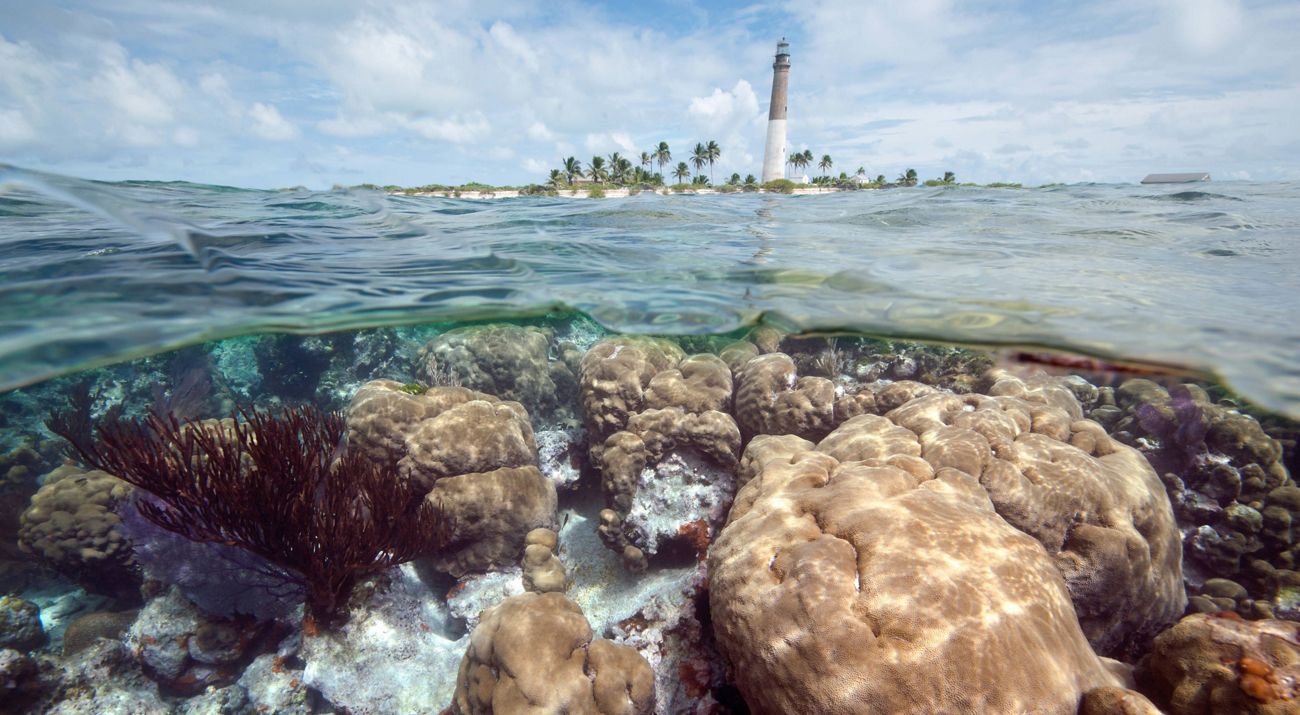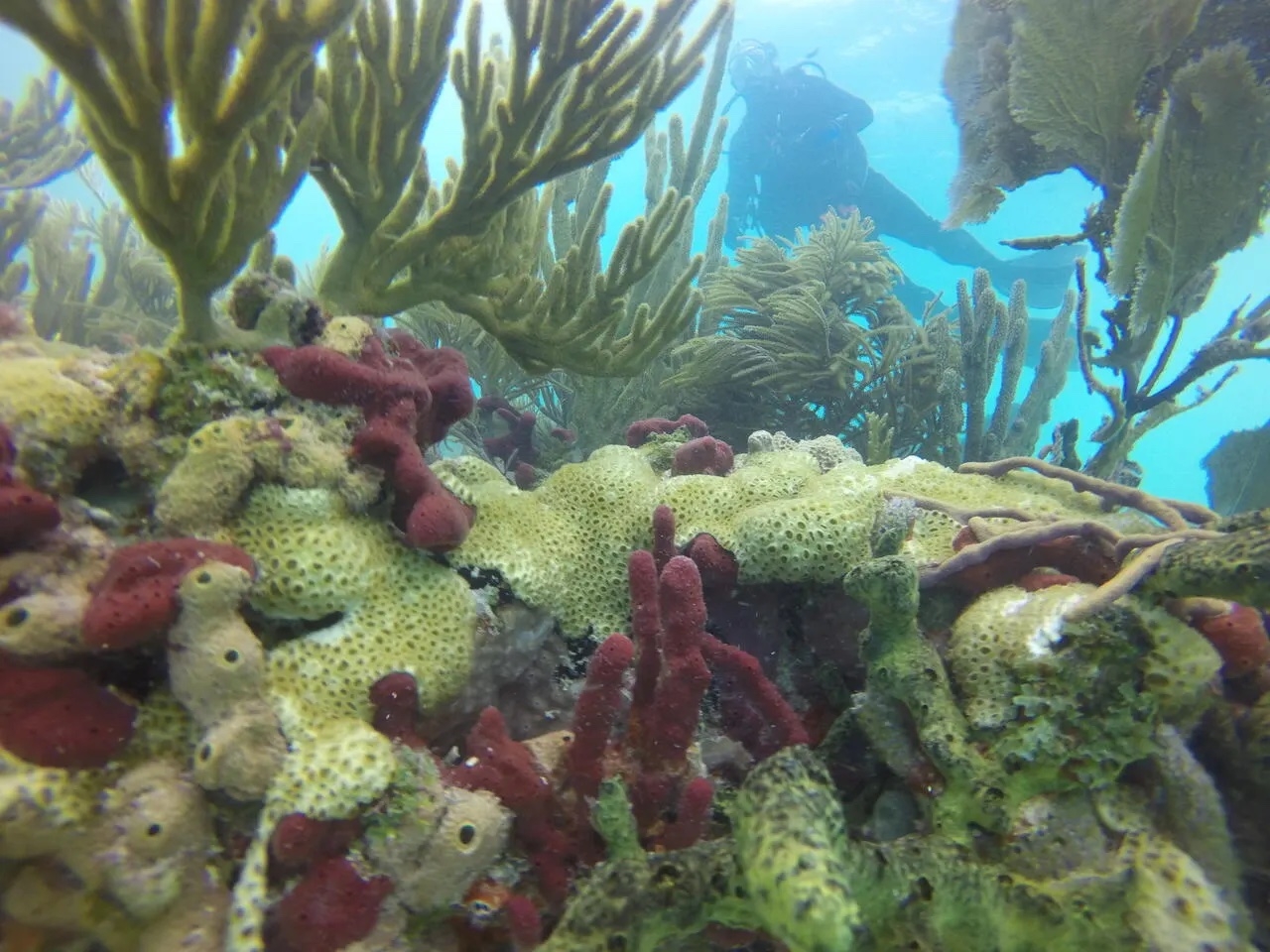
More than just lovely beaches and blue water, we have a deep connection to the Florida's oceans, providing oxygen, medicine, sustenance and livelihoods. However, it also faces risks like coastal storms, erosion and flooding, necessitating strategic conservation efforts. The complexity of our vulnerability to and reliance on the ocean makes it one of The Nature Conservancy’s greatest challenges.
Innovative Solutions for Ocean Conservation
In Florida, we focus on collaborating with communities and legislators to support and secure funding for critical ocean conservation issues. We work along our coasts to protect reefs, mangroves and salt marshes—our natural infrastructure—now threatened by climate change. We’re using science and technology to meet the challenge of ocean conservation with three innovative projects:
- Coastal Resilience program: With our partners, we’ve developed an online mapping tool that allows us to apply spatial planning to coastal hazard risk, resilience and adaptation issues.
- FishFace is an automated new digital recognition technology that could be used on fishing boats for more accurate sorting and identification of species.
- Mapping Ocean Wealth is a tool to enable visualization of benefits provided by coastal systems. It is designed for use in natural resource planning and policy decisions. The Conservancy was honored with the Tourism for Tomorrow Innovation Award for the project, presented by the World Travel and Tourism Council.
We’re also hard at work using nature-based solutions for ocean conservation. We’re restoring coral in Florida, the only coral reef system in the continental United States. Using pioneering methods, we’re restoring productive oyster habitats in estuaries where 85–100% of the oyster population had been lost. Next will be a 6.5-mile oyster habitat restoration project in Pensacola. After initial efforts proved highly effective, we’re supporting large-scale sponge restoration in Florida Bay and the Keys.
Through nature-based solutions and technology, we’re working to reduce overfishing, pollution, erosion and rising, warmer sea levels. For every marine and shoreline project in the state, our goal is to benefit both the wildlife and the people of Florida.
A Global Challenge and Opportunity
The ocean plays a crucial role in regulating climate change by absorbing excess heat and carbon dioxide, mitigating the impacts of greenhouse gas emissions. Additionally, sustainable food production from the ocean is essential for relieving pressure on marine ecosystems and ensuring a healthy food supply for future generations. Recognizing the interconnectedness of ocean ecosystems, there is a pressing need for global solutions to address issues such as overfishing, pollution and habitat degradation.
Our Commitment to Marine and Coastal Conservation
The Nature Conservancy in Florida is committed to these goals, aiming to protect 30% of the ocean by 2030, conserving four billion hectares and assisting 100 million people at risk of climate-related emergencies.
Help us continue our ocean conservation work in Florida.

Celebrating Success: The Kristin Jacobs Coral Reef Ecosystem State Aquatic Preserve
TNC in Florida celebrates a monumental achievement two decades in the making with the establishment of The Kristin Jacobs Coral Reef Ecosystem State Aquatic Preserve, spanning a 100-mile stretch from Key Biscayne to St. Lucie Inlet off Southeast Florida’s coast. Named in honor of the late environmental champion and State House Representative, Kristin Jacobs, this preserve represents the pinnacle of conservation efforts, boasting a diverse array of marine life including stony corals, soft corals, macroalgae, sponges and fish. Connecting to vital ecosystems like Florida’s southern coral reefs, seagrass meadows, and mangroves, as well as linking with five existing inshore aquatic preserves, the Kristin Jacobs AP ensures maximum protection for this invaluable natural resource, designated as “Outstanding Florida Water” to safeguard against pollution ensuring its preservation for generations to come.